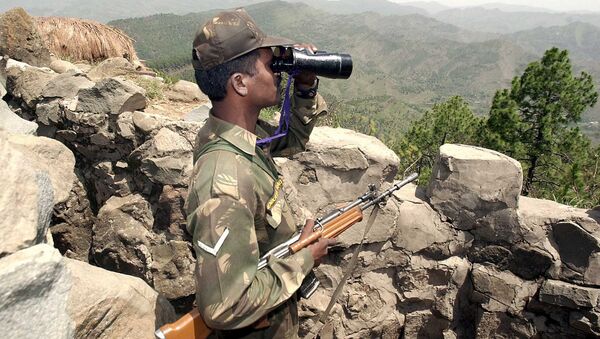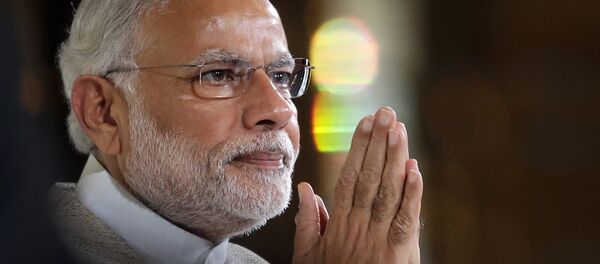It has been more than three days since Indian security forces eliminated top terrorist and Hizbul Mujaheedin Commander Burhan Wani. However widespread violence continues to plague the Kashmir valley. So far, 31 people have died and more than 1,300 have been injured.
Prime Minister Modi chaired a high level meeting on Tuesday which was attended by all of India's top cabinet ministers and intelligence officials. After the meeting, the Home Ministry charted out a comprehensive strategy for putting an end to the prevailing unrest in the Kashmir valley.
Sputnik's correspondent obtained access to the Home Ministry document regarding the government’s Kashmir strategy.
First of all, the government has decided to send adequate security forces in the valley so as to intimidate young people, in the hopes of dissuading them from pelting people with stones. Furthermore, it will help quell the violence immediately, before it has the chance to flare into a full-fledged conflict.
The government has decided to reach out to the opposition parties to heed their advice and India's central government will impress upon them that Kashmir crisis is a national problem which has to be dealt with unilaterally. By taking this step, the government hopes to get the full backing of all the political parties.
The government has also decided to reach out to the separatist leaders of Jammu and Kashmir and compel them to dissuade Kashmiri youths from engaging in street violence and pelting people with rocks.
The Indian government believes that there has been a lack of communication between the central leadership and the leaders of the various political parties of Jammu and Kashmir. So the government will initiate a political conversation among the different political party leaders, which will help it in the event of future unrest.
The central government will send religious leaders to pacify the rebellious teens in Kashmir. Furthermore, in the long term, these religious leaders will help guide the teens, who might otherwise fall prey to the ideologies of terrorist organizations. The national government has also asked its intelligence machinery to be more vigilant, since the state machinery of Pakistan has also been influencing the young Kashmiris.
The security forces have been asked to adopt a prudent approach to the use of force and not react instantly when dealing with hostile teens. Additionally, the central government will enlist the support of community elders to guide young people and change their mindset. It has been learned that due to the Pakistani propaganda, young Kashmiris consider security forces, state police and administrators to be their enemy. The government is keen to change this perception.
New Delhi is convinced that radicalization is the main reason for the growing unrest in the Kashmir valley, since radicalization has been on rise for the last year, fueling unrest among young people.
“Now it’s time for the government to take the right long-term steps to tackle the Kashmir problem. Over the past year, India’s status has increased internationally, so it can take some tough and concrete measures,” Lt Col (Rtd) Ashok Mehta told Sputnik.



